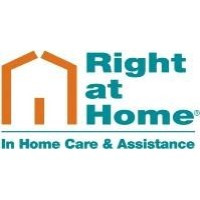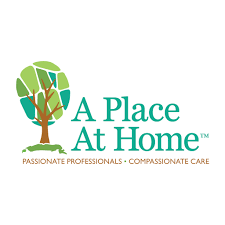Swan Hospice is actively seeking Admissions (RN) to join our team in Central New Jersey.
We provide quality hospice care to patients in skilled nursing facilities, assisted living facilities and in private homes.
Job Description
A. BASIC PURPOSE
Oversees primary caseload of Hospice patients and provides skilled professional nursing care to them, their families and caregivers as prescribed by the physician and in compliance with the Hospice Medicare Conditions of Participation, New Jersey Hospice licensure laws, accrediting body standards and agency policies and procedures. Provides the initial assessment and comprehensive nursing assessment and identification of problems of each patient; reassessment of nursing needs and collaborates to develop the Hospice Interdisciplinary Team (IDT) plan of care. Implements the plan of care and reevaluates and revises the plan of care relative to the patient’s nursing needs to provide appropriate, comprehensive and responsive goals and interventions. Teaches, supervises, and counsels the patient, family members, and staff regarding nursing care and the patient's needs, including other related problems of the patient at home Works closely with other members of the IDT to ensure all patient and family care needs are being met. Provides supervision to Hospice Aides/Homemakers.
In the temporary absence or vacancy of the Nursing Supervisor, the RN/Alternate Nursing Supervisor is authorized per the Managing Member to assume the role of the Nursing Supervisor and is responsible to perform the duties as outlined in the Nursing Supervisor’s Job Description(copy attached).
B. PRIMARY RESPONSIBILITIES
Nursing Process
As a member of the IDT, the Registered Nurse (RN) utilizes the nursing process to contribute to each patient’s total plan of care.
Assessing and Planning
1. Seek and obtain sufficient information necessary to function effectively in the Hospice setting where the patient/family/caregiver is receiving care.
2. Conduct initial assessment, including physical, emotional and psychosocial aspects, of patient/family/caregiver in a thorough, accurate, compassionate and timely fashion.
3. Utilize the nursing body of knowledge to provide leadership and guidance to the IDT in formulating and individualizing the interdisciplinary plan of care to include problem identification, interventions and goals to address palliative comfort measures for the terminally ill patient, family and caregiver.
4. Contribute to identifying both active and potential needs of the patient and his/her family, which may affect the plan of care.
5. Consistently collaborate with the physician to plan and implement the medical and nursing plan of care.
6. Review the nursing component of the comprehensive interdisciplinary plan of care with the IDT. Communicate in writing in the clinical record and verbally with the IDT to coordinate interventions and ensure continuity of care.
7. Facilitate and participate in the IDT care conference and contribute to patient care planning.
Implementing and Evaluating
- Provide nursing interventions and appropriate preventative and therapeutic nursing procedures.
- Nursing staff shall administer medications in accordance with all Federal and State laws and rules.
- Collaborates with IDT members to provide continuous assessment of assigned patients, interprets findings, initiates appropriate therapeutic actions and evaluates the results of these actions.
- Accepts responsibility of assignment to perform a specialized procedure only when qualified with specialty training, proven competency, clinical background and expertise in the specialty area.
- Works in cooperation with family/caregiver and IDT members to meet the physical and emotional needs of the patient/family/caregiver.
- Provides appropriate information and explanation to the patient and patient’s family.
- Facilitates patient and family education to promote continuity of care and optimal patient/family outcomes for quality of life as defined by the patient/family/caregiver.
- Demonstrates expertise in the utilization of all IDT members including volunteers and community resources.
- Fulfills productivity requirements on an average daily census basis as determined by acuity level and Administrator.
- Documents accurate, complete and relevant clinical notes regarding patient’s condition and care given. Maintains documentation a on a timely basis.
- Assesses the dietary/nutritional needs of Hospice patient and provides appropriate interventions relative to nutritional intake as the patient’s condition progresses.
Education
The RN is a mentor who is able to provide educational experiences and communicate knowledge of patient care to members of the IDT including, but not limited to, volunteers, hospice aide/homemaker, patient and family/caregivers, health care professionals and the general community.
- Acts as a mentor to other personnel by participating in orientation and assisting with field training and in-service education to contractors and referral sources, as needed.
- Participates in formal and informal in-services, and patient care conferences to promote professional growth of all interdisciplinary team members.
- Teaches the patient, family and/or caregiver regarding the progression of the disease process and self-care techniques as appropriate, which includes providing medication, dietary/nutritional counseling support and other instructions as ordered by physician, recognizing and utilizing opportunities for health counseling.
- Supervises Hospice Aides/Homemakers every fourteen (14) days per Medicare Conditions of Participation.
- Evaluates effectiveness of educational experiences and teaching methods in order to promote ongoing professional development of Hospice staff and quality patient outcomes for patients, families and caregivers.
Case Management
The RN is responsible for managing all patients assigned to his/her primary caseload by utilizing the following methods:
Efficiency
1. Manages daily visits and assignments for maximum efficiency.
2. Visit frequencies are according to individual patient needs and acuity.
3. Visit frequencies are reviewed at least weekly and altered to meet patient needs and acuity.
4. Patient care visits are coordinated with all IDT members in order to utilize manpower resources and provide optimal patient care.
Operations
1. Ensures adequate and appropriate inventory of supplies and equipment for the provision of patient services and promotes the efficient use of equipment and supplies.
2. Maintains confidentiality in patient related matters.
Leadership
1. Demonstrates behavior appropriate as a role model and leader including adhering to the agency code of conduct.
2. Demonstrates creativity and critical thinking ability when participating in IDT conferences, developing patient care plans or completing assigned projects.
3. Assumes leadership role to facilitate interdisciplinary care coordination and collaboration.
4. Functions without supervision, utilizing time constructively and organizing assignments for maximum productivity.
Communication
1. Introduces self and clarifies role to patient/family/caregiver, physicians, nursing facility staff and other referral sources.
2. Recognizes and responds appropriately to verbal and non-verbal cues.
3. Communicates effectively with all members of the IDT by:
i. Defending and supporting peer/team decisions and actions.
ii. Asserting self with tact.
iii. Supporting collaboration and team decisions/plans.
iv. Maintaining open communication.
v. Offering suggestions and criticisms constructively.
vi. Asking questions and sharing information during IDT conferences and nursing facility care conferences.
4. Relates complete and pertinent information in verbal and written communication. Maintains clinical records, statistics, and reports as prescribed and in compliance with local, state and federal laws.
5. Initiates and maintains open and effective communication with supervisor as well as members of the IDT as evidenced by improved patient outcomes.
Resource Utilization
- Coordinates travel time for visits and manages a caseload to deliver care in a cost-effective manner that demonstrates an understanding of Hospice reimbursement methodologies.
- Assures proper maintenance of records per agency guidelines.
- Participates in evening/weekend on-call as required, conducting on-call services in a clinically competent and responsive manner.
- Functions independently, but seeks and accepts guidance from other members of the IDT and members of the community, as deemed necessary and appropriate.
- Complies with local, state and federal laws, Medicare Hospice Conditions of Participation and agency policies and procedures.
- Conducts all business activities in a professional and ethical manner.
Customer Service
- Demonstrates the highest degree of customer awareness by seeking out opportunities to identify and meet the needs of internal and external customers.
- Is receptive to questions and criticism, and willing to offer assistance.
- Maintains accountability for patient satisfaction throughout the episode of care.
Quality Assessment/Performance Improvement (QAPI)
- Participates in the QAPI process by finding opportunities for continuous monitoring and identification of patient outcomes, intra/interdepartmental and environmental concerns.
- Displays a willingness to utilize problem solving techniques to insure appropriate interventions and resolutions.
- Participates in clinical record review.
- Assists and serves on committees and projects as requested.
Secondary Duties
1. Participates in staff meetings, department meetings, Hospice IDT meetings, in-services, committees and other related activities as required.
2. Completes a minimum of twelve (12) hours of in-services per year.
3. Performs other duties as assigned.
C. HUMAN RELATIONS
1. Must maintain a professional attitude and demeanor and is be able to communicate effectively and relate courteously and cooperatively with patients, caregivers, colleagues, supervisors, co-workers and all others.
2. Must be able to demonstrate optimism, enthusiasm and willingness to work constructively with other health care team members and reflect concern for the well being of patients and employees.
3. Interacts with all staff in a positive fashion supporting the mission and vision of the organization.
D. PHYSICAL REQUIPMENTS (See Attached Physical Requirements Form.)
1. Visual/hearing ability must be sufficient to comprehend written/verbal communication.
2. Excellent verbal communication skills are needed.
3. Able to effectively manage stress.
4. Manual dexterity sufficient for writing, keyboarding and telephone operation.
5. Able to work in a variety of settings and conditions in patient’s homes and facilities.
E. EDUCATION AND EXPERIENCE
1. Education
a. Graduate of an accredited registered nursing program.
b. Bachelor’s degree in Nursing preferred.
c. Certified Hospice and Palliative Nurse (CHPN) certification preferred.
2. Experience
a. Has minimum of one (1) year general nursing preferred with current hospice, home health, medical, surgical or critical care experience.
b. Experience with pain and symptom management interventions preferred.
c. Ability to work within an interdisciplinary setting.
d. Understanding of Hospice philosophy, principles of death/dying.
3. Licensure, Registration, and/or Certification
a. Registered Nurse licensed by the New Jersey State Board of Nursing in accordance with N.J.S.A. 45:11-23 et seq. and N.J.A.C 13:37.
b. Valid driver’s license and reliable transportation that is insured in accordance with New Jersey state requirements.
c. Satisfactory references from employers and/or professional peers.
d. Satisfactory criminal background check.







